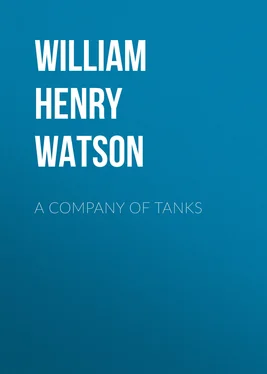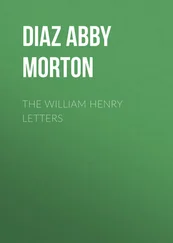William Henry Lowe Watson - A Company of Tanks
Здесь есть возможность читать онлайн «William Henry Lowe Watson - A Company of Tanks» — ознакомительный отрывок электронной книги совершенно бесплатно, а после прочтения отрывка купить полную версию. В некоторых случаях можно слушать аудио, скачать через торрент в формате fb2 и присутствует краткое содержание. Жанр: foreign_prose, История, foreign_edu, foreign_antique, на английском языке. Описание произведения, (предисловие) а так же отзывы посетителей доступны на портале библиотеки ЛибКат.
- Название:A Company of Tanks
- Автор:
- Жанр:
- Год:неизвестен
- ISBN:нет данных
- Рейтинг книги:3 / 5. Голосов: 1
-
Избранное:Добавить в избранное
- Отзывы:
-
Ваша оценка:
- 60
- 1
- 2
- 3
- 4
- 5
A Company of Tanks: краткое содержание, описание и аннотация
Предлагаем к чтению аннотацию, описание, краткое содержание или предисловие (зависит от того, что написал сам автор книги «A Company of Tanks»). Если вы не нашли необходимую информацию о книге — напишите в комментариях, мы постараемся отыскать её.
A Company of Tanks — читать онлайн ознакомительный отрывок
Ниже представлен текст книги, разбитый по страницам. Система сохранения места последней прочитанной страницы, позволяет с удобством читать онлайн бесплатно книгу «A Company of Tanks», без необходимости каждый раз заново искать на чём Вы остановились. Поставьте закладку, и сможете в любой момент перейти на страницу, на которой закончили чтение.
Интервал:
Закладка:
Haigh had ridden forward to Ecoust with a handful of Glasgow yeomen in order to keep an eye on the dump and reconnoitre the country between Ecoust and the Hindenburg Line. He started in the afternoon, joining an ammunition column on the way. They approached the village at dusk. The enemy was shelling the road and suspected battery positions short of the first houses. The column made a dash for it at full gallop, but a couple of shells found the column, killing a team and the drivers.
Haigh and his men wandered into a smithy and lit a small fire, for it was bitterly cold. The shelling continued, but the smithy was not hit. They passed a wretched night, and at dawn discovered a cellar, where they made themselves comfortable after they had removed the bodies of two Germans.
The reconnaissances were carried out with Haigh's usual thoroughness. Tank routes and observation posts were selected—"lying-up" places for the tanks were chosen. Everything was ready if the tanks should be ordered to attack Bullecourt from the direction of Ecoust.
On April 4th I was introduced to the Higher Command. The Vth Corps had moved forward from Acheux to the ruined chateau at Bihucourt. There I lunched with the General, and drove with him in the afternoon to an army conference at Fifth Army Headquarters in Albert. The block of traffic on the road made us an hour late, and it was interesting to see how an Army commander dealt with such pronounced, if excusable, unpunctuality in a Corps commander.
The conference consisted of an awe-inspiring collection of generals seated round a table in a stuffy room decorated with maps. The details of the attack had apparently been settled before we arrived, but I understood from the Army commander's vigorous summary of the situation that the Third Army would not attack until the 7th. The greatest results were expected, and the Fifth Army would join in the fray immediately the attack of the Third Army was well launched. As far as I was concerned, my tanks were to be distributed along the fronts of the Australian and Vth Corps. The conference broke up, and the colonel and I were asked to tea at the chateau. It was a most nervous proceeding, to drink tea in the company of a bevy of generals; but the major-general on my right was hospitality itself, and the colonel improved the occasion by obtaining the promise of some more huts from the major-general, who was engineer-in-chief of the Army. Eventually we escaped, and the colonel 7 7 Now Brigadier-General J. Hardress Lloyd, D.S.O.
drove me back to Behagnies, where battalion headquarters lay close by my camp.
On the night of the 5th, as soon as it was dusk, my tanks moved forward. One by one they slid smoothly past me in the darkness, each like a patient animal, led by his officer, who flashed directions with an electric lamp. The stench of petrol in the air, a gentle crackling as they found their way through the wire, the sweet purr of the engine changing to a roar when they climbed easily on to the road—and then, as they followed the white tape into the night, the noise of their engines died away, and I could hear only the sinister flap-flap of the tracks, and see only points of light on the hillside.
Tanks in the daytime climbing in and out of trenches like performing elephants may appeal to the humour of a journalist. Stand with me at night and listen. There is a little mist, and the dawn will soon break. Listen carefully, and you will hear a queer rhythmical noise and the distant song of an engine. The measured flap of the tracks grows louder, and, if you did not know, you would think an aeroplane was droning overhead. Then in the half-light comes a tired officer, reading a map, and behind him another, signalling at intervals to a grey mass gliding smoothly like a snake. And so they pass, one by one, with the rattle of tracks and the roar of their exhaust, each mass crammed with weary men, hot and filthy and choking with the fumes. Nothing is more inexorable than the slow glide of a tank and the rhythm of her tracks. Remember that nothing on earth has ever caused more deadly fear at the terrible hour of dawn than these grey sliding masses crammed with weary men....
My tanks were safely camouflaged in the old quarry at Mory Copse before dawn on April 6th. I joined them in the morning, riding up from the camp at Behagnies on a troop-horse I had commandeered from my troop of Glasgow Yeomanry. The quarry was not an ideal hiding-place, as it lay open to direct though distant observation from the German lines; but the tanks were skilfully concealed by the adroit use of trees, undergrowth, and nets, the hill surmounted by the copse provided an excellent background, and we were compelled to make a virtue of necessity as the open downs in the neighbourhood of Mory gave not the slightest cover. 8 8 Paget, the Corps Camouflage Officer, was of the greatest assistance.
The village itself was out of the question: the enemy were shelling it with hearty goodwill.
We lay there comfortably enough, though unnecessary movement by day and the use of lights at night were forbidden. No enemy aeroplane came over, but a few shells, dropping just beyond the copse on a suspected battery position, disturbed our sleep. The tanks were quietly tuned, the guns were cleaned, and officers were detailed to reconnoitre the tank routes to Ecoust and Noreuil.
The offensive was postponed from day to day, and we were growing a little impatient, when at dawn on April 9th the Third Army attacked.
It had been arranged at the last Army Conference that the Fifth Army would move when the offensive of the Third Army was well launched. My tanks were to be distributed in pairs along the whole front of the army, and to each pair a definite objective was allotted. I had always been averse to this scattering of my command. The Hindenburg Line, which faced us, was notoriously strong. Bullecourt, the key to the whole position, looked on the map almost impregnable. The artillery of the Fifth Army was to the best of my knowledge far from overwhelming, and gunners had told me that good forward positions for the guns were difficult to find. I realised, of course, that an officer in my subordinate position knew little, but I was convinced that a surprise concentration might prove a success where a formal attack, lightly supported by a few tanks scattered over a wide front, might reasonably fail. I planned for my own content an attack in which my tanks, concentrated on a narrow front of a thousand yards and supported as strongly as possible by all the infantry and guns available, should steal up to the Hindenburg Line without a barrage. As they entered the German trenches down would come the barrage, and under cover of the barrage and the tanks the infantry would sweep through, while every gun not used in making the barrage should pound away at the German batteries.
I was so fascinated by my conception that on the morning of the 9th I rode down to Behagnies and gave it to the colonel for what it was worth. He approved of it thoroughly. After a hasty lunch we motored down to the headquarters of the Fifth Army.
We found General Gough receiving in triumph the reports of our successes on the Third Army front opposite Arras.
"We want to break the Hindenburg Line with tanks, General," said the colonel, and very briefly explained the scheme.
General Gough received it with favour, and decided to attack at dawn on the following morning. He asked me when my tanks would require to start. The idea of an attack within twenty-four hours was a little startling—there were so many preparations to be made; but I replied my tanks should move at once, and I suggested air protection. General Gough immediately rang up the R.F.C., but their General was out, and, after some discussion, it was decided that my tanks would have sufficient time to reach the necessary position if they moved off after dusk. We drove at breakneck speed to the chateau near, which was occupied by the Australian Corps, and were left by General Gough to work out the details with the Brigadier-General of the General Staff.
Читать дальшеИнтервал:
Закладка:
Похожие книги на «A Company of Tanks»
Представляем Вашему вниманию похожие книги на «A Company of Tanks» списком для выбора. Мы отобрали схожую по названию и смыслу литературу в надежде предоставить читателям больше вариантов отыскать новые, интересные, ещё непрочитанные произведения.
Обсуждение, отзывы о книге «A Company of Tanks» и просто собственные мнения читателей. Оставьте ваши комментарии, напишите, что Вы думаете о произведении, его смысле или главных героях. Укажите что конкретно понравилось, а что нет, и почему Вы так считаете.












